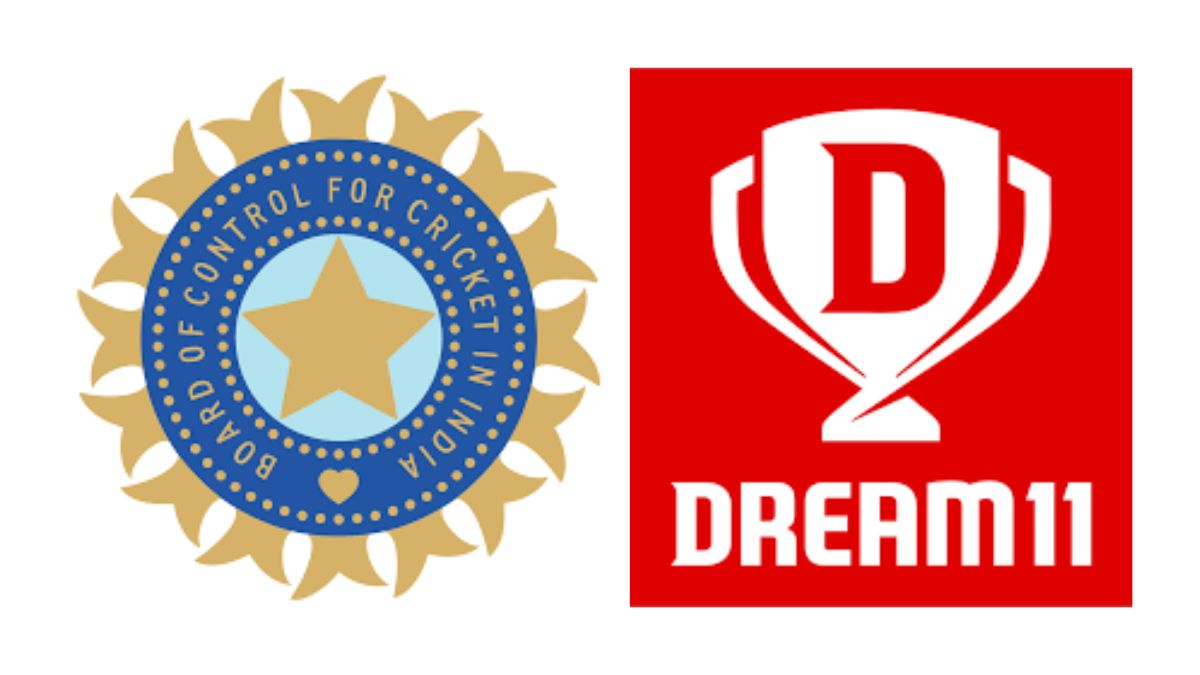Online Gaming Bill Fallout: Dream11 withdraws as Team India’s jersey sponsor ahead of Asia Cup 2025.

With around two weeks left for the Asia Cup 2025, Dream11, India’s largest fantasy sports platform, has stepped down as the lead jersey sponsor of the India cricket team. The timing could not be more striking, as this decision comes right after the Indian Parliament passed ‘The Promotion and Regulation of Online Gaming Bill’, 2025, a piece of legislation seen as a watershed moment in the country’s evolving digital economy.
But the story goes beyond a sponsorship change. Companies like Dream11 have over the years transformed people’s relationship with cricket, impacted livelihoods, and promoted interest in sports at an unprecedented scale.
Cricket, sponsorships, and the fantasy sports boom
Cricket has been a cultural phenomenon with unmatched commercial pull in India. Sponsorship deals associated with Team India are highly coveted, often commanding multi-million-dollar figures. For several years now, online fantasy gaming platforms, led by Dream11, have invested heavily in cricket sponsorships to strengthen their visibility and consumer base.
Dream11, in particular, has sponsored major tournaments, team jerseys, and even international fixtures. Its brand success was deeply intertwined with cricket’s meteoric popularity. However, this mutually beneficial partnership between Indian cricket and fantasy gaming platforms has faced increasing scrutiny. The debate has always centred on whether such companies encourage responsible play or blur the line into gambling-like behaviour.
This year, the matter escalated with the Promotion and Regulation of Online Gaming Bill, 2025, a legislation that directly affects companies like Dream11.
Read More: Cheteshwar Pujara retires: ‘The Rock’ of Indian cricket who stood firm like ‘The Wall’
The Promotion and Regulation of Online Gaming Bill, 2025 – an overview
The Bill, passed by both houses of Parliament recently, is the first full-fledged attempt at creating a national legal framework for online gaming. Until now, India’s gaming industry operated in a patchwork of state laws, judicial interpretations, and self-regulatory codes. Some states permitted fantasy sports and skill-based games, while others banned them under anti-gambling laws.
Distinction between games of skill and games of chance
The core of the legislation lies in legally recognising the difference between ‘games of skill’ and ‘games of chance.’ Traditionally, fantasy gaming operators like Dream11 have argued that their offerings fall under skill-based gaming because players need statistical analysis, research, and performance tracking to create teams. The Bill accepts this distinction but places regulatory caps to ensure skill games do not turn into disguised betting.
Licensing and authority
A new National Online Gaming Authority (NOGA) will be established to regulate the sector. Gaming companies must apply for licenses, disclose algorithms, and comply with fairness audits. This ensures consumer protection and checks against exploitative practices.
Advertising and sponsorship restrictions
One of the most crucial provisions, directly impacting Dream11’s cricket sponsorship, is the restriction on how gaming companies can advertise and associate with public events. The Bill stipulates that gaming platforms cannot sponsor national teams’ jerseys or logos, as such exposure is seen as excessive promotion, especially to minors. This explains why Dream11 opted out of Team India’s lead jersey sponsorship just ahead of the Asia Cup.
Read More: ‘Serious injury replacement substitute’ rule activated for India’s domestic multi-day competitions

Consumer safeguards
Mandatory limits on time/money spent, age-gating (18+), and KYC compliance for users are part of the regulation. Companies are also instructed to set aside part of their revenues towards responsible gaming awareness.
Taxation and economic oversight
The Bill clarifies the tax regime on online gaming. Companies must report revenues transparently, and winnings beyond a certain amount will attract direct tax deductions at source (TDS).
The rise of fantasy sports and its impact
Fantasy sports apps certainly revolutionised the way Indians engaged with cricket and other sports. By allowing fans to create ‘virtual teams’ and compete with others for rewards, they introduced an active, immersive dimension to watching matches.
Dream11 and its peers significantly boosted sports consumption in India. Young audiences started watching not just marquee games but also domestic and underdog matches in order to win prizes through their fantasy selections. Lesser-followed tournaments and players gained attention because their performance carried weight in fantasy leagues. Essentially, these platforms incentivised fans to follow sports more closely than ever before.
By making fans research form, pitch conditions, and player performance, fantasy sports created a generation of analytically engaged fans. At grassroots levels, millions of Indians began talking about player statistics, emerging talents, and different formats of the game. This fostered a knowledge-based sports culture in a country where, traditionally, cricket viewership had leaned more toward casual following than detailed engagement.
Livelihood and economic opportunities
The industry also became an economic ecosystem. Many users, especially in small towns and tier-2/3 cities, earned supplemental income through their winnings on fantasy apps, though they lost significant amount as well. Simultaneously, local influencers, analysts, and sports bloggers-built careers around tips, strategies, and content linked to apps like Dream11. Entire cottage industries of fantasy cricket podcasts, and data-analysis websites grew around this phenomenon.
Read More: Asia Cup 2025: Shubman Gill drafted in as vice captain; Shreyas Iyer given the snub
Support for non-cricket sports
Dream11 and similar platforms expanded beyond cricket into sports like football, kabaddi, and basketball. This increased public interest and financial investment in those sports, giving them visibility they had never enjoyed before in India. Sponsorship deals with leagues like the Pro Kabaddi League and domestic football clubs highlight this broader impact.
The double-edged sword of change
On the one hand, the online gaming bill represents maturation, as it is designed to safeguard vulnerable populations and bring transparency to a booming sector. On the other, the withdrawal of Dream11 highlights the cultural and economic vacuum that may emerge if such platforms retreat from mainstream sports.
For now, BCCI will have to find a new lead sponsor. While technology and consumer brands may step in, the kind of aggressive spending that fantasy platforms brought to cricket may be difficult to replicate.
For fans, who depended on winnings, content creation, or secondary income from fantasy sports may feel squeezed. Regulation curbs aggressive play but might also curtail supplementary earnings opportunities.
Read More: Rugby-style Bronco test to be introduced for Team India: Details of this test & its relevance

